 |
| The FDI sector has affirmed its role as a "locomotive" in Vietnam's goods trade. Photo : Duc Thanh |
Economic bright spots and the "locomotive" role of the FDI sector
Not only this year, when FDI attraction in the first 9 months reached over 28.54 billion USD in registered capital, an increase of 15.2% over the same period last year; disbursed capital reached a record in the past 5 years, with 18.8 billion USD, but in the entire period of 2021-2025, FDI attraction has always been a bright spot of the economy.
This was emphasized in the report that the Government submitted to the National Assembly on the implementation of the 5-year Socio-Economic Development Plan 2021-2025. According to the report, the total registered FDI capital in this period reached 185 billion USD, higher than the 2016-2020 period (170 billion USD).
But importantly, the quality of FDI capital flows continues to improve, attracting many strategic investors and large-scale FDI projects in the fields of semiconductor electronics, artificial intelligence, etc. In addition, the link between the domestic economic sector and the foreign-invested sector has also been strengthened.
A series of projects were mentioned, such as the research and development (R&D) center project of NVIDIA, Qualcomm, SAP; or the project of SYKE (Sweden), LEGO (Denmark)... Not to mention, there are also billion-dollar investments of Samsung, LG, Foxconn, Goertek, Luxshare...
It is the efforts in building internationally competitive incentive and preferential policies for large and important projects, including projects in the fields of R&D, innovation, etc., that have contributed to making Vietnam an attractive destination for global investors.
The report on the Vietnamese economy recently published by HSBC also mentioned this. According to HSBC experts, despite concerns about the impact of tariff policies, FDI flows into Vietnam still increased sharply compared to the same period. The special point that HSBC mentioned is that investments from China and the US in Vietnam are still increasing. "Despite trade fluctuations, the two largest economies in the world continue to invest in Vietnam," HSBC commented.
The National Assembly’s Economic and Financial Committee, when examining the Government’s report, gave a positive assessment of Vietnam’s FDI attraction. Accordingly, the registered FDI capital reached 185 billion USD, exceeding the 2016-2020 period and focusing on high-tech, semiconductor, artificial intelligence, etc. fields, reflecting Vietnam’s growing attractiveness to strategic corporations.
“These results are not only quantitative, but also create qualitative changes, forming an innovation ecosystem, an R&D network of the world's leading technology corporations present in Vietnam, along with the development of a team of intellectuals and high-tech experts, opening up prospects for Vietnam to gradually master core technology and participate more deeply in the global value chain,” Mr. Phan Van Mai, Chairman of the National Assembly's Economic and Financial Committee, emphasized.
The audit report of the National Assembly's Economic and Financial Committee also affirmed the "locomotive" role of the FDI sector in goods trade, when the export proportion of FDI enterprises increased from 71.7% in the first quarter to 79.1% in the third quarter of 2025; the import proportion increased accordingly from 63.1% to 72.5%.
Increasing domestic and foreign connections to improve the quality of FDI flows
Although the "locomotive" role of the FDI sector is positive, frankly, the National Assembly's Economic and Financial Committee still expressed concern that the economy is still heavily dependent on this sector.
“The dual dependence on FDI in exports and input imports is a major bottleneck for the trade sustainability and self-reliance of the economy. This needs special attention in the coming management period,” the National Assembly’s Economic and Financial Committee said, adding that this dependence will make the economy vulnerable to fluctuations in the global supply chain.
 It is the efforts in building internationally competitive incentive and preferential policies for large and important projects, including projects in the fields of R&D, innovation, etc., that have contributed to making Vietnam an attractive destination for global investors.
It is the efforts in building internationally competitive incentive and preferential policies for large and important projects, including projects in the fields of R&D, innovation, etc., that have contributed to making Vietnam an attractive destination for global investors. 
Not to mention, another weakness is that the connection between FDI enterprises and domestic enterprises is still weak, and has not yet formed a supporting industrial ecosystem with international competitiveness...
According to the World Trade Organization (WTO) report in 2024, the proportion of domestic value-added content in exports of Vietnam's strategic manufacturing industries is generally quite low compared to competitors in the region and the world.
For example, in the electricity and electronics industry, Vietnam's export strength, the domestic value-added content is only 26.9%, significantly lower than that of Thailand (52.2%), Indonesia (61.2%), India (66%), China (75.3%) and South Korea (68.8%).
During the discussion at the National Assembly, many delegates also mentioned this issue. “It is necessary to shift from attracting by quantity to quality. Currently, according to statistics, more than 70% of export turnover belongs to the FDI sector, but the domestic added value has not met expectations. Therefore, it is necessary to have a selective policy, prioritizing projects with commitments to transfer technology, use Vietnamese human resources and link with domestic enterprises,” said delegate Nguyen Dai Thang (Hung Yen).
Meanwhile, delegate La Thanh Tan (Hai Phong) said that it is necessary to build supply chain linkage programs between FDI enterprises and domestic enterprises, especially in supporting industries and high-tech manufacturing.
“There needs to be a mechanism to encourage FDI enterprises to transfer technology, train human resources, and support capacity building for Vietnamese enterprises,” said Mr. Nguyen Dai Thang, adding that there needs to be investment incentive policies for FDI enterprises that commit to transferring technology and using products and services of Vietnamese enterprises.
Along with that, according to Mr. Nguyen Dai Thang, there needs to be a mechanism to build an ecosystem linking three private enterprises - State - FDI enterprises, so that enterprises "do not swim alone" but "swim with the herd", reduce dependence on import sources, increase localization, promote innovation, technology transfer, increase competitiveness and the ability to participate in the global value chain.
Sharing the same view, delegate Nguyen Nhu So (Bac Ninh) said that in the current context of attracting FDI, there should be clear regulations on commitments to localization and technology transfer to Vietnamese enterprises.
“FDI must be a catalyst for domestic production capacity, increasing the value of ‘made in Vietnam’, helping Vietnamese enterprises to master value stages in the global supply chain. This is the foundation for a self-reliant and sustainable economy,” Mr. Nguyen Nhu So emphasized.
Source: https://baodautu.vn/tang-ket-noi-noi---ngoai-de-nang-chat-dong-fdi-d426387.html







![[Photo] Opening of the 14th Conference of the 13th Party Central Committee](https://vphoto.vietnam.vn/thumb/1200x675/vietnam/resource/IMAGE/2025/11/05/1762310995216_a5-bnd-5742-5255-jpg.webp)
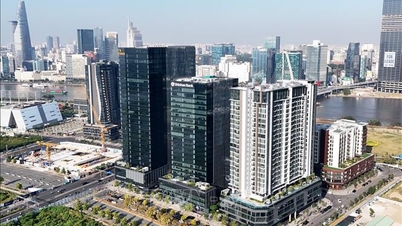

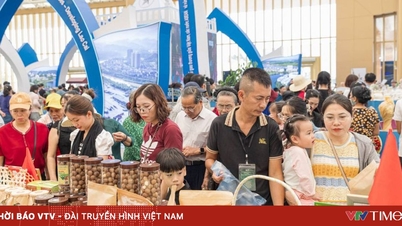

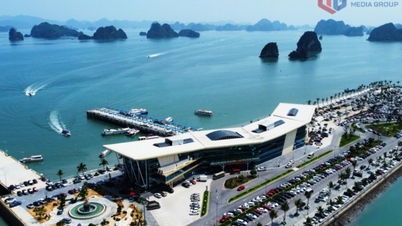

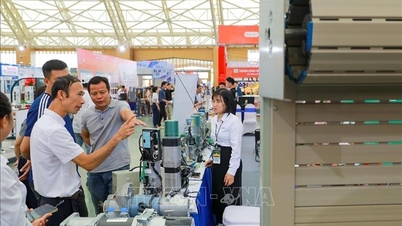





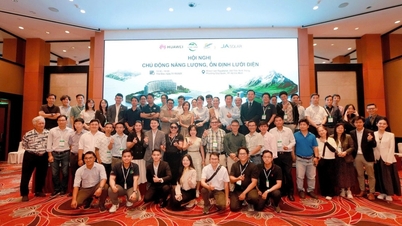















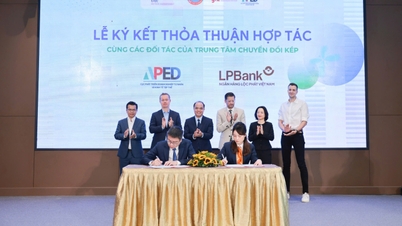
![[Photo] Panorama of the Patriotic Emulation Congress of Nhan Dan Newspaper for the period 2025-2030](https://vphoto.vietnam.vn/thumb/1200x675/vietnam/resource/IMAGE/2025/11/04/1762252775462_ndo_br_dhthiduayeuncbaond-6125-jpg.webp)



































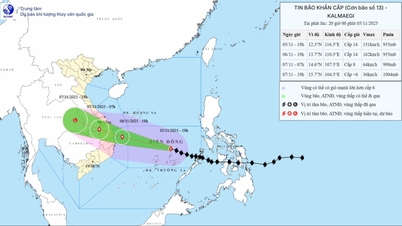




















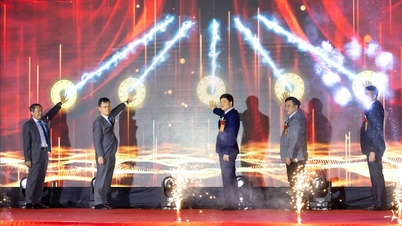
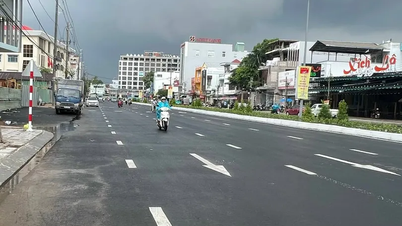















Comment (0)